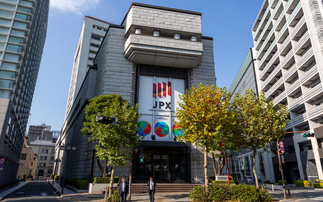Gavin Blair speaks to Nobusuke Tamaki, director general, planning department at Japan's Government Pension Investment Fund (GPIF) - the world's biggest pension fund - about record profits, deflation and deficits, as well as increased scrutiny from a new government
Gavin Blair: Deflation affects the whole economy, what specific effects does it have on the GPIF?
Nobusuke Tamaki: Lower rates of interest of course. For a long-term investor, 0.5% deflation is not a doomsday scenario. Deflation of the scale seen, say in the 1930s, would be very different. But our real GDP is growing in spite of the declining working population.
Gavin Blair: The GPIF is increasing its investments in emerging markets, how is that process progressing?
Nobusuke Tamaki: In October, we put out an announcement asking for proposals from fund management companies for our investments in emerging equity markets. We are now in the process of picking up the best management companies for this. We’re now going through a few rounds of selection and because this is the very first time doing this, there may be a few new things for us to consider. We’re expanding into emerging equity markets but we don’t know how much we’re going to invest in them yet. This will be within the range of our existing policy asset mix.
Gavin Blair: The GPIF has a reputation for being fairly conservative.
Nobusuke Tamaki: Yes, but emerging markets aren’t necessarily speculative. We need to be careful but going into emerging equity markets can be part of a very prudent and conservative strategy.
Gavin Blair: The percentage of the equity portfolio invested in foreign assets has increased but is still lower than many funds around the world. Is it possible this will change?
Nobusuke Tamaki: Under the policy asset mix the allocation is 9% for international equities, though there is a permissible range [+/-5%] for that to fluctuate. If we want to change the allocation, we need approval from the Ministry of Health, Labour and Welfare.
Gavin Blair: I understand the GPIF is looking at investing in overseas infrastructure projects, could you comment on this policy?
Nobusuke Tamaki: Many people are discussing that there are some potential investors in overseas infrastructure. The GPIF is referred to as one of those names, but we haven’t decided or announced anything.
Gavin Blair: What derivative instruments does the GPIF use in its investments, and are there any plans to make more use of them?
Nobusuke Tamaki: We use futures for hedging, because we are a long-term investor and we need to use derivatives for our passive investments to help us follow the benchmarks. However, we don’t treat the complicated structured products as a source of income.
Gavin Blair: Are there are any plans to move into other asset classes such as real estate?
Nobusuke Tamaki: Because of our fund size, and in terms of efficiency, we are not sure of the effect of diversification into other asset classes. Any asset we go into has to be big enough, liquid enough and transparent enough. So we’re not sure yet; we don’t categorically deny the possibility of going into a new asset class. We’re studying it, but no decision has been made.
Gavin Blair: Some government ministers have called for more scrutiny of the GPIF, including making it part of the ‘jigyo shiwake’ process [wide-ranging review of publicly-funded organisations and spending carried out by the new government]. What effect might this have on operations and investment strategy?
Nobusuke Tamaki: There is some political momentum behind the ‘jigyo shiwake’ but our day to day business is to continue to make our operations as efficient as possible. The GPIF’s results were looked at but nothing too bad was found.
Gavin Blair: Is there pressure to cut costs? (The GPIF already has a relatively small staff.)
Nobusuke Tamaki: This pressure is always there. The Minister of Health, Labour and Welfare has indicated cost-cutting goals of between 1% and 3%. This is not for fund-management fees, it’s for everyday costs. The only way we can reduce management fees is through competition: by hiring dozens of external fund managers and encouraging them to work hard for us for as low fees as possible.
Gavin Blair: Are there any thoughts of doing more investing in-house the way some other funds do?
Nobusuke Tamaki: We have a very small dealing room and in-house investments, but these are only for passive investments of domestic bonds and short-term assets (cash). There are no plans to hire bond or equity traders like some funds do.




